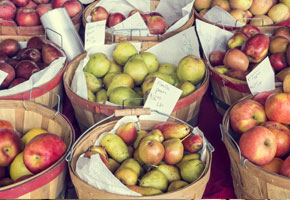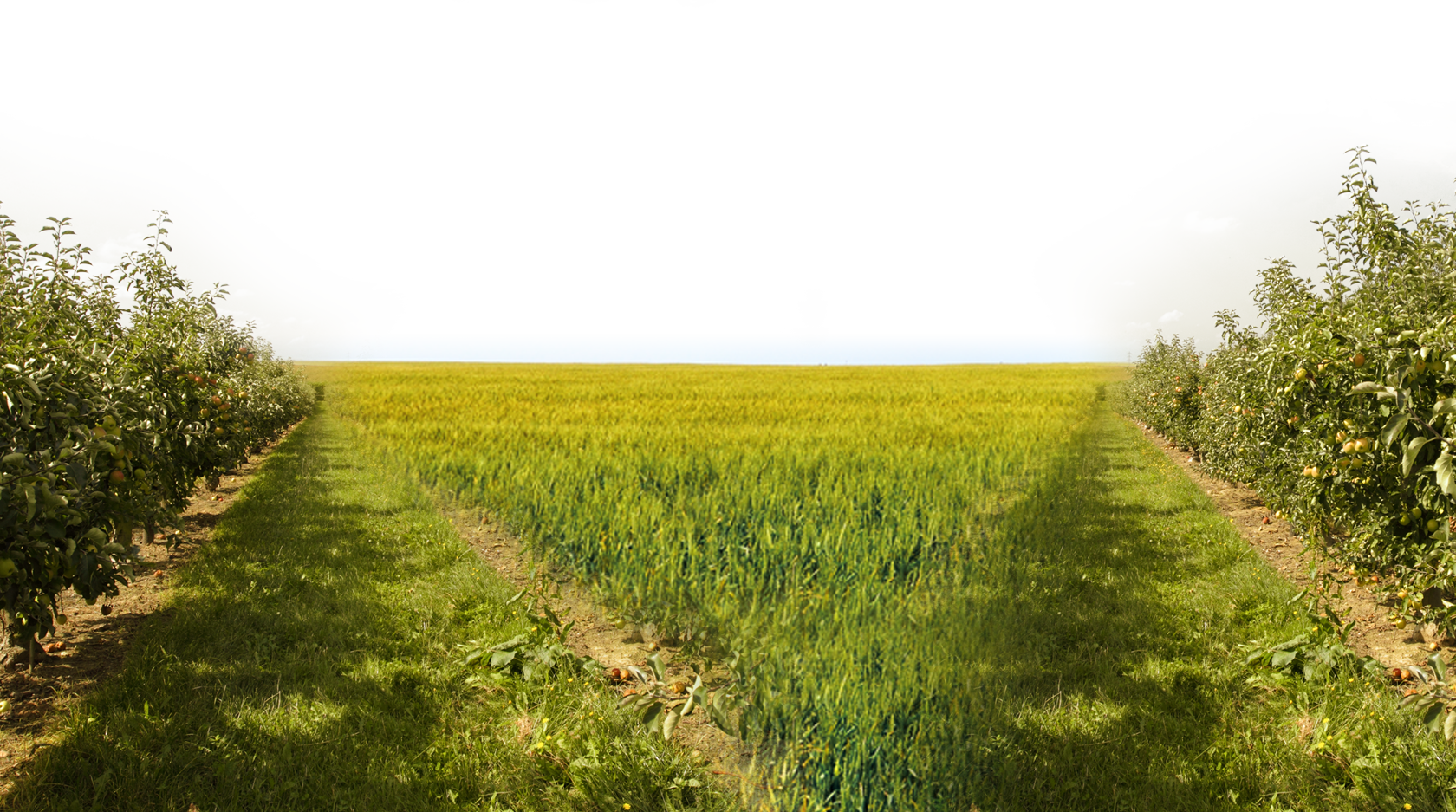
An Argument for Organic Apples
By Aisleagh Jackson | 0 Comments | Posted 10/30/2014
An apple a day keeps the doctor away is a farmiliar refrain to us North Americans, but what happens if the apples are covered in potentially harmful chemicals? A recent report from the Environmental Working Group pointing to the European Union ban on American-grown apples raises exactly that concern.
The furor surrounds DPA, or diphenylamine, a chemical spray treatment applied to apples to prevent “strorage scalding.” If storage scalding sounds vaguely ominous, you’re right- though perhaps not for the reason you’d first expect. Storage scald refers to the black or brown spots that occur on an apple’s peel while it is kept in cold storage, where it can remain for up to a year. Because DPA is applied after harvest, it appears in greater concentration than other pesticides used in conventional agriculture. (As the EWG report points out, DPA is regulated as a pesticide, though it does not serve the same functions- it does not kill insects, weeds or fungal growth).
DPA is not to be confused with BPA, in the news again as paper receipts are once again called out as source of exposure, but the narratives are similar: the substance has been deemed “unlikely to prevent a public health concern” as recently as 2007 by the World Health Organization, but additional research indicates otherwise. In particular, the presence of nitrosamines, a carcinogen found in food, cosmetics and latex rubber and linked to increased rates of stomach and esophogeal cancer. Nitrosamines themselves have been regulated in the U.S. since the 1970’s.
European regulators have responded to this risk decisively: in 2012, a rule was issued that bans the use of DPA on apples and other fruit grown in the 28 member nations. This past March, the rule extended to imported fruit, limiting the acceptable amount of DPA as 0.1 part per million. (The average concentration reported on U.S. apples is 0.43 ppm).
So why call this an argument for organic apples? We Americans eat nearly 10 lbs per person of raw apples a year, per the USDA; organic apples are grown without the use of synthetic pesticides. Many of the apple’s benefits lie in its peel, which one can feel a whole lot better consuming if there is no need to stress about ominous acronyms. Finally- the idea of consuming ‘fresh’ produce that has spent a year in cold storage just doesn’t sound that appetizing.
As an apple-centric aside – check out Martha Stewart’s candy apple recipe here, and Epicurious’ caramel apple recipe here to dress up your Halloween party plates.


 Contact us
Contact us



























